-
What Is Single Stream Recycling?
As you are planning a waste management strategy for your business, you may want to inquire about the benefits of single stream recycling . Unlike conventional recycling methods, which require the user to sort various materials, single stream recycling allows various types of materials to be recycled in a single bin. Single stream recycling offers the same advantages of paper, plastic, and metal recycling, but with none of the hassle. When you recycle near Atlanta, a single stream approach may be suited for your needs.
After you have set up single stream recycling for your business, you will be able to eliminate any confusing or bulky recycling materials that require you to sort and separate materials. Single stream recycling is particularly effective for office environments, where it can be difficult to ensure that every employee is practicing proper waste management strategies. Your waste management company can answer any additional questions that you may have about the single stream method.
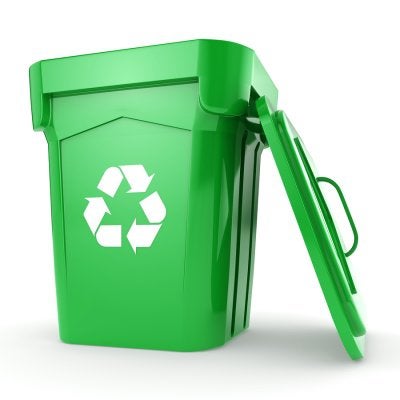
-
Why Your Carbon Footprint Matters
How often do you throw your trash into recycling bins ? Recycling things like aluminum cans, office paper, and glass bottles is a simple way to reduce your carbon footprint. If you’re wondering why many people are looking for ways to save energy and reduce waste near Atlanta, then read on to learn why your carbon footprint matters.
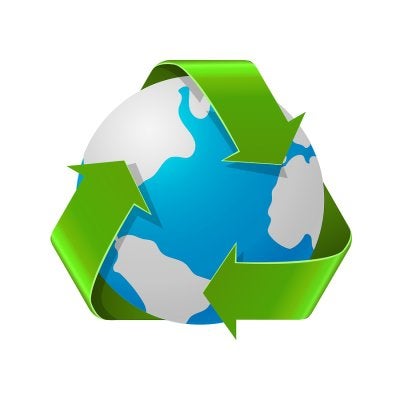
Environmental Changes
As the carbon footprints of people and industries increase, their effect on the environment does as well. Your carbon footprint corresponds with the overall amount of greenhouse gas emissions that you are responsible for due to your everyday activities, meaning that your carbon footprint relates to the climate change associated with global warming. For example, the rising temperatures affect precipitation rates and cause vegetation patterns and locations to change. Also, rising sea levels can displace people living in coastal towns and cities, and the erosion of shorelines can destroy shoreline ecosystems.
Wildlife Impact
The warming temperatures have influenced wildlife, as well. Changing weather patterns can threaten the species that depend on any vegetation unable to withstand the shifting climate. For example, migratory birds sometimes reach their destination only to find that their primary food source is unavailable due to unusual temperatures. At the same time, polar bears are losing their hunting grounds because of melting arctic ice.
Human Health
Food crops are heavily influenced by the weather, so it’s no surprise that rising temperatures are affecting the food supply in some areas. The changing climate has led to drought in some parts of the world, and the lack of precipitation results in smaller crops and increased levels of malnutrition. Also, drought can cause a lack of clean drinking water, and warmer climates allow disease-carrying mosquitoes to survive in areas that were once too cool for them.
Your Carbon Footprint
Reducing your carbon footprint can be accomplished in many ways. Recycling materials like glass, aluminum, and plastic can lower the amount of energy used to process raw materials. Also, you can unplug devices that aren’t in use, adjust your thermostat settings, and switch to energy-efficient light bulbs to reduce your carbon footprint.
-
The Many Benefits of Recycling
Just about every material that we use as a society can be recycled, and the advantages of doing so impact more than just the environment. If you’re wondering if it’s worth your time to send your recyclable waste to a recycling center near Atlanta , then watch this video to learn about the benefits of this form of waste management.
Recycling steel, aluminum, and many other metals can be done repeatedly without affecting the properties of the materials. This makes metal recycling particularly beneficial because it prevents the need to mine new ore and requires less energy than processing raw materials. Also, recycling paper saves trees and reduces the amount of water and energy needed to make paper. Finally, plastic recycling is incredibly versatile, allowing plastic bags to be made into something completely new, such as insulation or clothing.
-
A Look at Industrial Solid Waste
Are you looking for ways to reduce your business’s waste near Atlanta ? If so, then you might benefit from knowing more about different types of industrial waste. Read on for information about industrial solid waste and what you can do to reduce it.
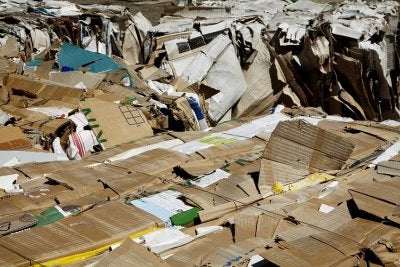
Defining Industrial Solid Waste
Industrial solid waste is that which is generated by businesses during manufacturing or industrial processes. Also, it can be produced as a separate waste source from a non-manufacturing activity. Any business, service, or commercial establishment that makes use of industrial or manufacturing processes probably produces industrial solid waste. By law, industrial solid waste is defined as a non-household and non-hazardous waste that requires evaluation to determine the proper waste disposal method.
Identifying Industrial Solid Waste
While the possibilities for industrial solid waste are nearly endless, there are some types that are commonly generated. Some of the most common examples of industrial solid waste include non-recyclable glass, oil-contaminated wastes, paint residue, tires, and electrical components. Additional examples would be food waste, animal remains and carcasses, empty chemical containers, infectious wastes, and confidential documents.
Evaluating Industrial Solid Waste
When it comes to waste management, the generator of the industrial solid waste is held responsible for evaluating the waste and proving that it is non-hazardous through methods like laboratory testing or documenting the waste’s characteristics. Warehouses, food processing facilities, automotive manufacturers, and distribution centers are some examples of sites that might produce industrial solid waste.
Reducing Industrial Solid Waste
As many business owners are glad to learn, there are several ways in which companies can decrease the amount of industrial solid waste that they reduce. First, upgrade to technology and production techniques that lessen the amount of waste created. Next, maintain your equipment and ensure that your team is properly trained. Finally, initiate an industrial waste recycling program. By reducing the amount of industrial solid waste produced by your business, you can save on waste management costs and reduce your company’s environmental impact.
-
Understanding Your Company’s Carbon Footprint
If you recently acquired recycling bins in Atlanta for your business, then you’re probably interested in fostering a green business and reducing your environmental impact. Continue reading to learn about your company’s carbon footprint.

What is a carbon footprint?
A simple way to think of your company’s carbon footprint is the sum of everything it does that impacts climate change. In many cases, a carbon footprint is calculated by creating an estimate of the total CO2 and other greenhouse gas emissions produced by your company’s operation. Once the numbers are added up, they are expressed as in what’s called a carbon dioxide equivalent, which represents how much CO2 would cause the same amount of warming.
How is a carbon footprint calculated?
To gain an understanding of where your company currently stands as far as its carbon footprint is concerned, you can hire an expert to come in and perform an assessment. To gather the information needed for calculating your business’s carbon footprint, the evaluator will add up as many emissions pathways as is feasible. Some examples of pathways include how much power is required to run your buildings each day, the amount of transportation needed for shipping products to or from your company, and the level of emissions generated by cooling or heating your business.
How can I reduce my company’s carbon footprint?
To make a dent in your company’s carbon footprint, start by having it calculated, so you know what areas to address. Also, setting up a recycling system is one of the simplest ways in which you can reduce your company’s negative impact on the environment. By placing metal, plastic, and cardboard recycling bins in your office or building, you can implement better waste management practices in a way that’s easy to use and maintain. A few other methods to consider are upgrading your company’s light bulbs to LEDs, encouraging working from home for employees, and getting your team in the habit of turning off electronics and lights when they aren’t in use.
-
The Impact of the Recycling Industry
When you toss a used soda can into a recycling bin for aluminum materials, you may not give much thought to where it goes after or what type of impact that simple action can have. Watch this video to learn how recycling your waste near Atlanta impacts society and the environment.
For over 200 years, the recycling industry has provided countless benefits for the environment and the economy. When you place your recyclable waste into a recycling bin, it is processed and converted into a clean, high-quality product. This means that new items can be created with much less environmental impact. Also, in the United States alone, this industry directly employs more than 140,000 people, making it incredibly beneficial to the economy.
-
What to Do with Old Computers
When people think about recycling in Atlanta , they often forget to consider electronics recycling. Many different types of commercial, industrial, and retail businesses generate electronics waste when they replace their broken appliances and equipment with new models. Your local waste management company or recycling center can offer you valuable information and recycling facts about how to dispose of old computers and other electronic devices.
When you throw an old computer into a dumpster, it is simply hauled away to a landfill during trash pickup. A computer will not decompose naturally, but it does contain many toxins that are bad for the environment and may seep into the soil in a landfill. Instead, you can arrange for bulky pickup or junk removal of your electronic devices through your waste management company. Some recycling centers reuse or refurbish computer parts, while others may donate working electronics to schools or charitable organizations.
If there is nothing to salvage or reuse in your computer, your recycling center will ensure that it is disposed of according to the federal and local laws. Reputable recycling centers will recycle electronic devices without resorting to using landfills, incinerators, prison labor, or selling it to a developing country.
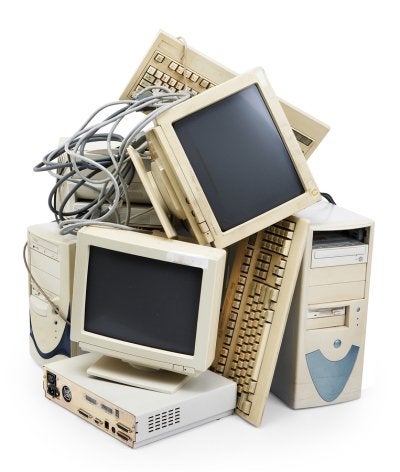
-
How Metal is Recycled
If your company’s recycling program includes scrap metal recycling in Atlanta , you may be interested in learning more about how metal is recycled. Typically, recycling centers can manage metal recycling for copper, steel, aluminum, brass, iron, and metal wires. All recycling centers are different, however, so you should confirm what metal recycling capabilities yours has. Each type of metal is recycled in a different way.
Watch this video to learn more about how metal is recycled. Metal recycling can reduce the cost of your company’s waste disposal, improve your business’ environmental practices, and generate valuable, recycled materials rather than causing an increased demand for new products. Recycled metal can be used in the production of cans, cars, boats, metal casts, or ingots.
-
Improving Waste Management Strategies at Your Restaurant
If you’re interested in making your restaurant greener, you should look into improving your waste management, recycling, and waste disposal in Atlanta . A comprehensive and effective waste management program is key to ensuring that you save money and protect the environment. Here are some ways that you can improve the waste management strategies at your restaurant.
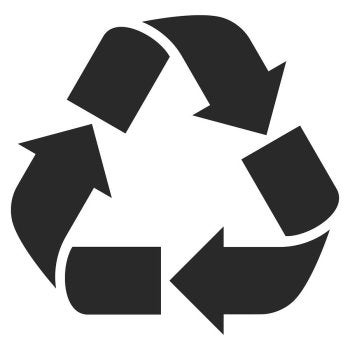
Sustainability and Zero Waste Initiatives
The best and most sustainable waste management program is one that minimizes your environmental impact while reducing your waste management and waste disposal costs. Your waste management company should focus on reducing, reusing, and recycling whenever possible. You can not only reduce the cost of your waste disposal, but also reduce the amount of waste that is generated in the first place. One of the ways that you can do this is by implementing a zero waste initiative. A zero waste initiative is a commitment to reduce the amount of waste that is sent to a landfill for waste disposal. This is achieved by investing in single-stream recycling and organics recycling.
Single-Stream Recycling
Recycling centers that offer single-stream recycling do not require companies to sort their recyclables into separate recycling bins or dumpsters before pickup. Instead, all recyclables can be put into the same recycling bin or dumpster, and they are then picked up by your waste management company and sorted at the recycling center. This makes it easier for employees and guests to participate in your restaurant’s recycling program, and it also saves the company money and labor trash removal, junk removal, and waste disposal.
Organics Recycling
One of the most voluminous types of waste that restaurants produce is organic waste, or food waste. Rather than throwing food and food byproducts away to be sent to a landfill, you can participate in your recycling center’s organics recycling program. Organic waste will be composted and then used as fertilizer and soil nutrients. Food waste that can be composted includes fruits, vegetables, meat, poultry, seafood, animal bones, shells, bakery items, eggs, paper egg cartons, milk, juice, paper juice cartons, plants, cut flowers, coffee grounds, coffee filters, tea bags, paper products, ice cream, yogurt, and cottage cheese.
-
How to Reduce Waste at Your Office
Offices typically generate quite a bit of waste in Atlanta , from paper, plastics, and glass, to food waste and electronics waste. Your local waste management company can help you develop and implement a sustainable waste management program that allows you to reduce, reuse, and recycle throughout the office. Here are some great ways that you can reduce waste at your office.
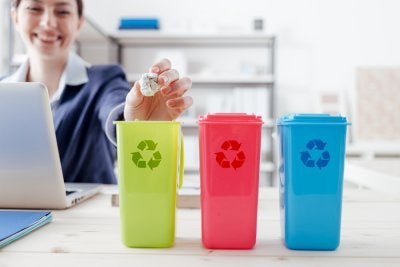
Reduce Waste Generation
You can quickly reduce the amount of waste that is generated throughout your office by reducing your reliance on paper products. Encourage employees to share information electronically, and resist printing out materials for your use or to convey information. You can also stop using cover sheets on faxes, print documents on both sides of the paper, use the copy machine less often, eliminate unnecessary forms or redesign them to use less paper, and post announcements electronically or on a central bulletin board. You can also use fewer paper products in your kitchens and bathrooms, and instead use washable, reusable products.
Reuse Valuable Materials
You can reuse valuable materials, like paper, throughout the office. Paper only has printing or writing on one side can be reused as scratch paper. File folders, internal envelopes, binders, packaging materials, and other office supplies can be shared and reused throughout the office. You can also donate items that can’t be used again within the office to other charities or organizations so that they won’t end up as waste.
Recycle and Compost When Possible
Your local recycling center can provide you with valuable recycling facts and can inform you as to which items are recyclable and compostable. Most recycling centers can process paper recycling, glass recycling, cardboard recycling, and plastic recycling. Some can also manage scrap metal recycling and electronics recycling. Do not dump or throw away any office item that can be safely recycled. Place recycling bins throughout the office, and arrange for your waste management company to pick up your recycling when they do your trash pickup. Most food waste can also be composted and used for fertilizer. Find out if your office generates food waste that is compostable, and ask your recycling center or waste management company about composting.
RECENT POSTS
categories
- Uncategorized
- Waste Management Atlanta
- Waste Disposal and Recycling
- Hazardous Waste Disposal
- Chemical waste removal
- solid waste removal
- R3 Program
- Sustainable Organizations
- Sustainable Waste Removal
- Commercial Waste Removal
- Materials Management Program
- Dumpster Rental
- Roll Off Dumpsters
- Construction Site Waste Removal
- Sustainability
- Recycling in Atlanta
- Industrial Recycling
- Industrial Waste Removal Services
- Southern Waste & Recycling
- Waste Removal Atlanta
- Waste Specialists
- Atlanta
- Infographic
- Front Load Dumpsters
- Rear Load Dumpsters
- Reusable Electronics
- Dump Truck Atlanta
- Recyclable Electronics
- Trash Compactors
- Recycling
- Recycling Program
- Office Recycling
- Metal Recycle
- Electronic Waste
